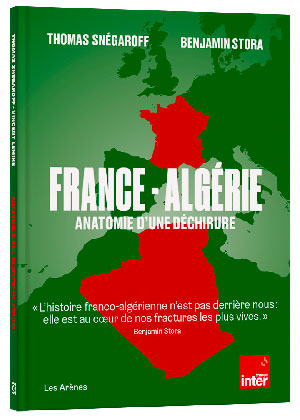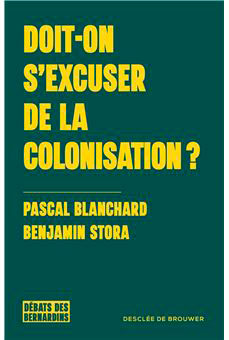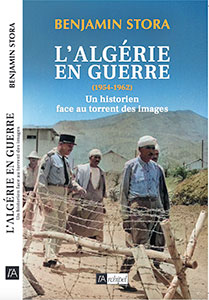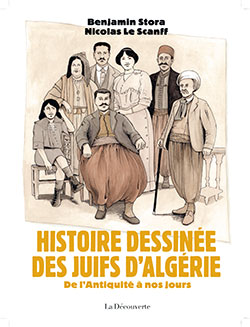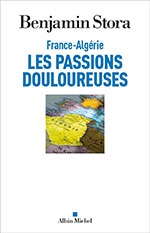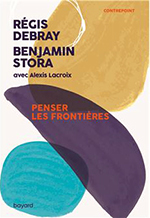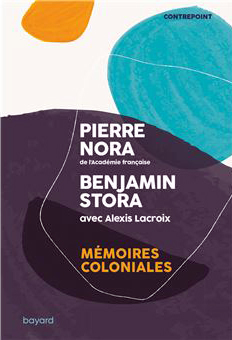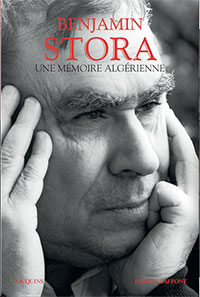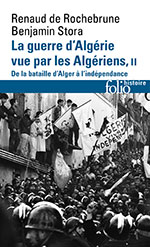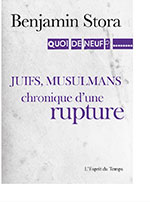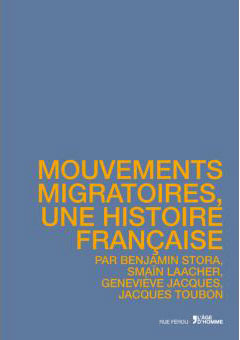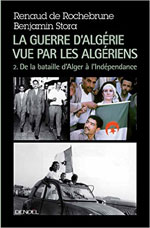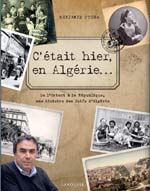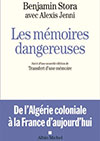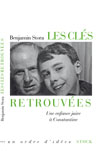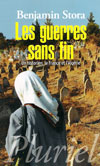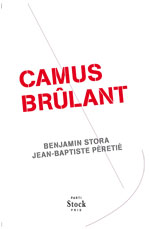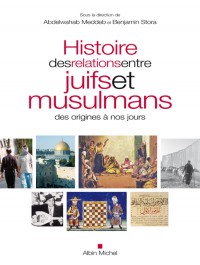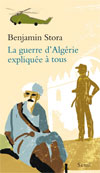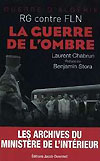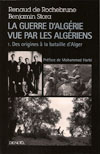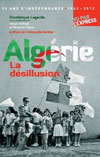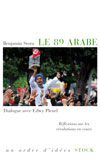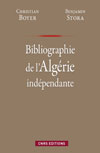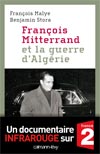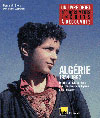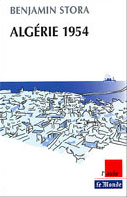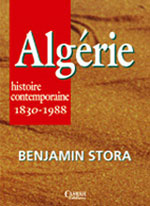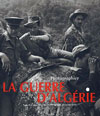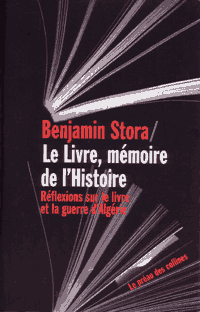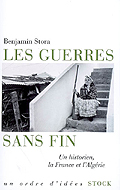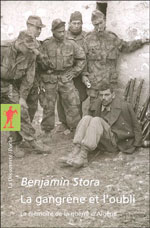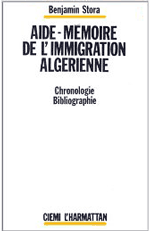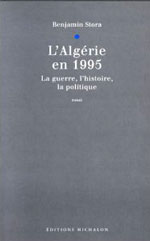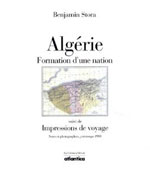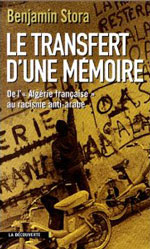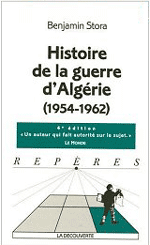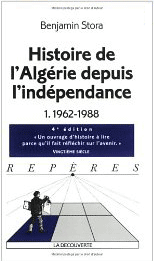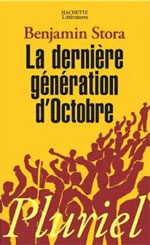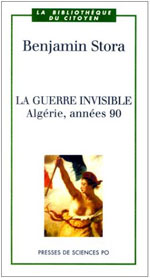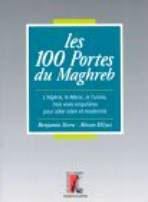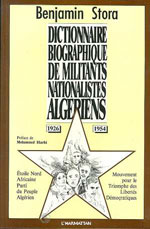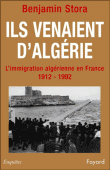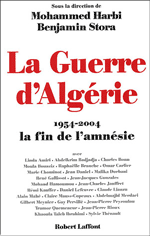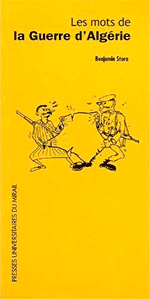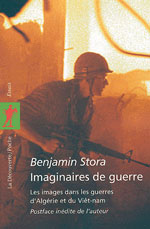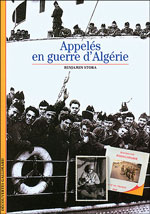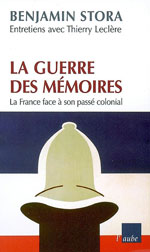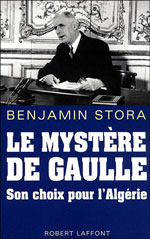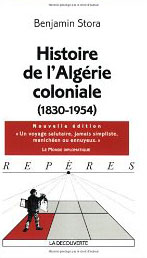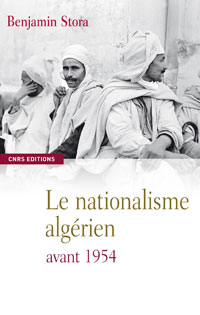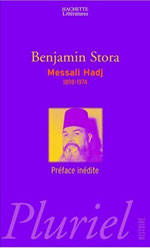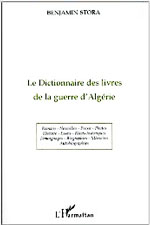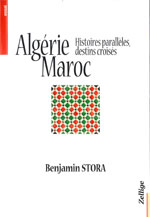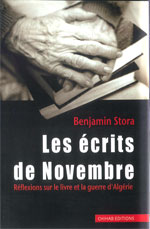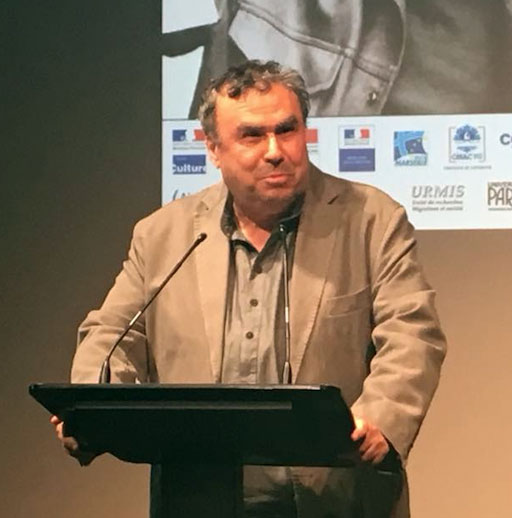Si je dis “L'Algérie est un pays musulman,” on m'accuse de faire le jeu des intégristes. Si je dis “L'Algérie n'est qu'un pays républicain,” on me rétorquera qu'il ne faut pas oublier qu'elle est un pays musulman. La France fonctionnne par images fixes, alors que l'Algérie échappe aux définintions simples. Une sorte de mixité, de métissage, de pluralité, de circulation sur fond d'héritages multiples a modelé le pays.
If I say "Algeria is a Muslim country," I get accused of supporting (Islamic) integrism. If I say "Algeria is a republican country," I'm told that you cannot forget that it is a Muslim country. France works using fixed images, while Algeria escapes simple definitions. What shapes the country is a sort of variety, hybridization, and plurality that flow across diverse cultural heritages.
- Benjamin Stora
Born in Constantine, Algeria, on 2 December 1950, Benjamin Stora is today perhaps the most highly solicited France-based historian, public intellectual, and patron of cultural production on the subject of Algeria. He has made his first explicit foray into something approaching a postcolonial critique of France in his most recent work, Voyages en postcolonies, in which he positions himself transnationally, drawing on his experiences in both France and Algeria. Chronologically, the book fits into a body of work regarding the author’s "intellectual and political trajectory" that he began writing at the turn of the millennium and which has taken on a semi-autobiographical form. Where Voyages differs is that it covers three specific journeys to Vietnam (1995-1997), Algeria (1998), Morocco (1998-2001), and back to France, selectively cataloguing French cultural and historical production, film in particular, concerning these countries in the 1990s. Stora takes on the reflexive yet critical tack of analyzing his experiences living and travelling in these countries. Moreover, he insists that this work shows his broader interest and research in the postcolonial French imperial world, particularly regarding South East Asia, as demonstrated in the first chapter on Vietnam.
Postcolonial studies, which has been in vogue in the Anglophone academic (and culturally contingent) world since the 1980s, has only begun to be given a serious place in the French ivory tower in the last decade. This is perhaps surprising given that the Algerian war of Independence, long seen as a paradigmatic experience of postcolonialism, ended more than fifty years ago. One of the central tenets of the postcolonial school, as it has been be taken up in France, is that transnational relations, migrations, and histories between the ex-colony and previously colonizing state are highlighted by the second generation of Franco-Algerians. While the first generation was largely seen as an immigrant, subaltern population, the second generation occupies a liminal space that belongs neither fully to Algeria nor to France. In Voyages, Stora fuses a recognition of this categorical hybridity with a work of personal expression that is often absent from his writings for the media, for which he is highly sought after. For example, on 17 October 2012, when French President François Hollande made what has been interpreted as a statement of French postcolonial guilt, Stora was internationally sought to comment on Hollande’s position. However, in an interview, he explained that the “I” used in Voyages allowed him to “avoid being overly cautious” in his other writings; indeed, in this work the reader can discern a Benjamin Stora who is unplugged from the political, media, academic, and religious debates in which he is often involved. Instead, Stora reopens the writing-culture debates surrounding “ego-ethnography,” addressing the implication of the self in social science.
In so doing, Stora retains his characteristically clear style, explaining in limpid terms the theoretical axioms of the work for a broad and not necessarily specialist audience. He problematizes travel writing, and addresses the intersection of postcolonial studies with the notion of transnational “hybridity,” especially in regards to traditional historical methodology and the contemporary legacy of the French empire. In the three chapters that comprise the book, Stora recounts the three voyages using a socio-economic filter to analyze these societies. In between his academic commentaries, he offers a space for an affective appreciation of life in these countries that is gleaned through his own “mobility” and “interaction,” which are both leitmotifs for a central thesis that asserts the importance of experience or “contact” in historiography. His experience in Hanoi is especially telling, since it combines episodes of deep-seated anxiety about the situation in Algeria, keen micro-societal observation (street scenes; clothes; language), and connections across the previous territories of French empire. Indeed, the most novel material in the book relates specifically to war and nationalism through a discussion of visual material culture. He offers particularly striking descriptions of his discoveries: monuments (modern and colonial), signposts (freak weather and human-geography), and landmarks (Dien Bien Phu).
The author’s multiple relationships to Algeria—which have been formed through familial history, personal tragedy, and professional work—impel him to undertake a psychoanalytical correspondence with Alice Cherki (FLN companion and assistant to Frantz Fanon) and Leïla Sebbar (novelist, editor of short stories, and literary intellectual). These reflections underpin the other sections of the book as well. For example, they are reflected in the Vietnamese narrative, which he wrote during the Algerian civil war. Undoubtedly, the experience of war is a major theme of the book; the intensity of his own fears regarding the war in Algeria (death threats drove him to leave France) and the symbolic omnipresence of war in Vietnam (which has experienced war four times in recent history) drives the continuous comparisons between Vietnam and Algeria and highlights structural linkages and differences among French colonies. The book uncovers a wider and more interconnected colonial nexus that continues to operate between these formerly colonized countries, especially given the fact that anti-colonial struggle has more recently been re-focused against the US rather than France. The implication is perhaps that these broader grids of analysis are often lacking from Algerian-centric scholarship that tends to focus on bi-lateral France-Algeria relations.
One slightly dissatisfying aspect of chapters two and three is that they rework old material that is only partially modified. In addition, a more sustained reflection on the comparison between Morocco and Algeria would have been welcome, given that the Morocco chapter is full of surprises. Stora arrives at the cusp of the transition from Hasan II to Mohamed VI and underscores the insularity of the country from a geographical and political vantage point. He remarks on the inconsistency between the popular doxa regarding a strong Jewish presence in Morocco and reality, and discusses the dominant “cultural” presence of France, which Stora makes no bones about criticizing on the grounds of clientism. Stora also offers a fascinating socio-psychological explanation of the Salafi movement in Algeria, contrasting it with a reading of the Makhzen as a tentacular Moroccan monarchical power structure that is steeped in a culture of “consensus and continuity.” The text thus strongly transmits Stora’s neutrality in reference to Morocco; writing about the country’s intellectuals, the upper echelons of society, and placing himself within the expatriate community, a picture of externality is painted in his Moroccan journey.
His briefer trips to Algeria are much more personalized, passionate, and heartfelt—moving among worlds and postcolonial visions, the contact he establishes appears easier than in Morocco, even as his positionality as an Algerian is never explicitly discussed. Moreover, the cultural studies sub-section regarding images/film of war is more detailed for Algeria than for either of the other two countries. In this chapter, he shows how French film tends to look backwards vis-à-vis Algeria (to the war of independence), whereas Algerian film, truly severed from France since 1994 (when the borders were closed and visa applications no longer accepted) is forced to directly examine present-day actualities. He implies that an image can powerfully both demonstrate historiographic ideas as well as underpin them (the construction and de-construction of history), leading to an interesting epistemological argument regarding whether film is a more useful pedagogical tool as compared with conventional teaching methods. Stora understands the cinematographic image as a potential tool for reconciliation, but is more guarded over its ability to fuse perspectives.
Undoubtedly, the importance of Stora’s work to the field of Algerian history is linked to his well-chronicled leftist struggle in France, an engagement that he continues through his scholarship. Stora has managed to bring Algerian history into the mainstream and has consistently defended a plural notion of Algerian nationalism. In the process, he has often faced criticism from the various factions that defend their particular understanding of Algerian history. These identities fight not only for recognition of specific histories, but also to change the face of contemporary political discourse. Whilst in the coda to Voyages (as well as in the interview) Stora encourages second generation French to undertake less “politicized” research, given that there is now no physical attachment with Algeria, his own political and intellectual trajectory (“when I worked on Algeria it was a political act”) has helped to make this possible. Thus, a curious hope emerges for a writer who follows in the tradition of Algerian figures of intellectual resistance from the 1930s: that a form of Algerian plurality may be able to re-emerge almost fifty years after Algeria’s war of independence.
by Samuel Everett

